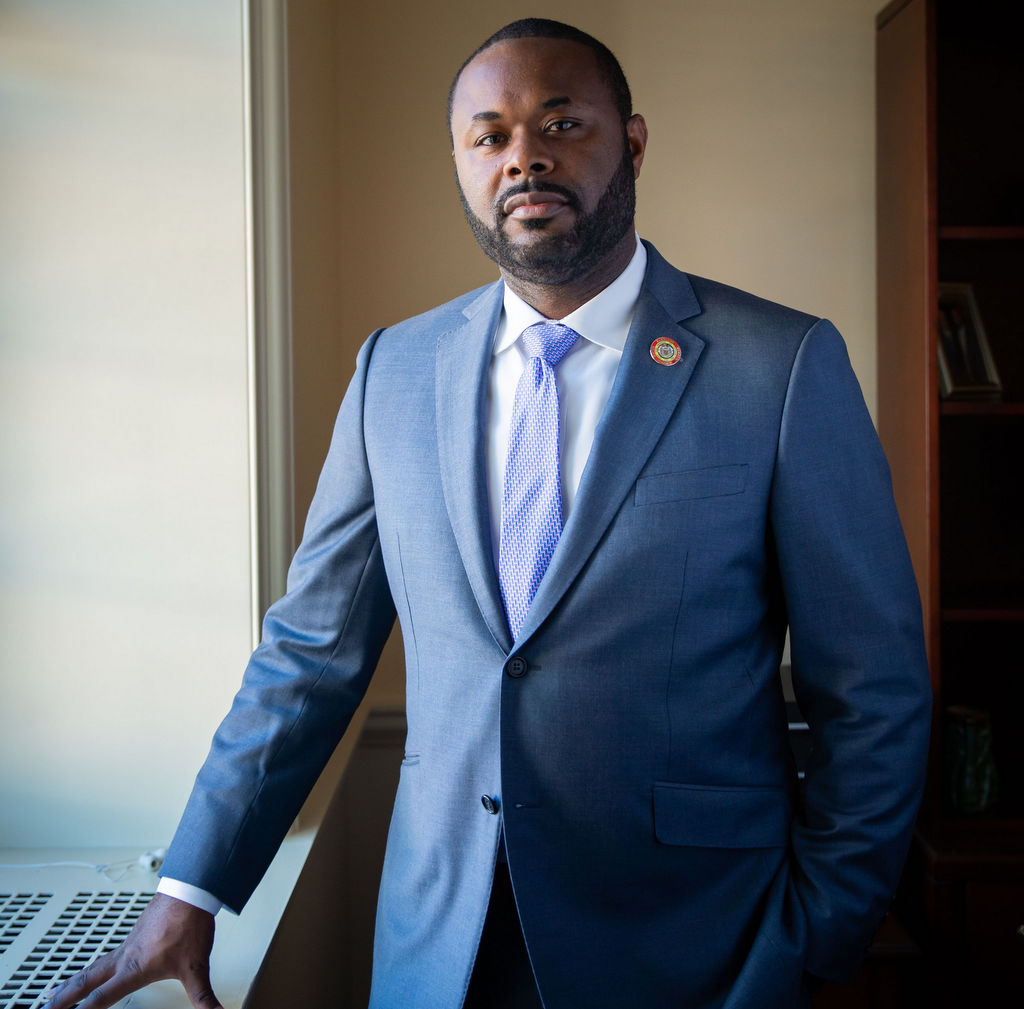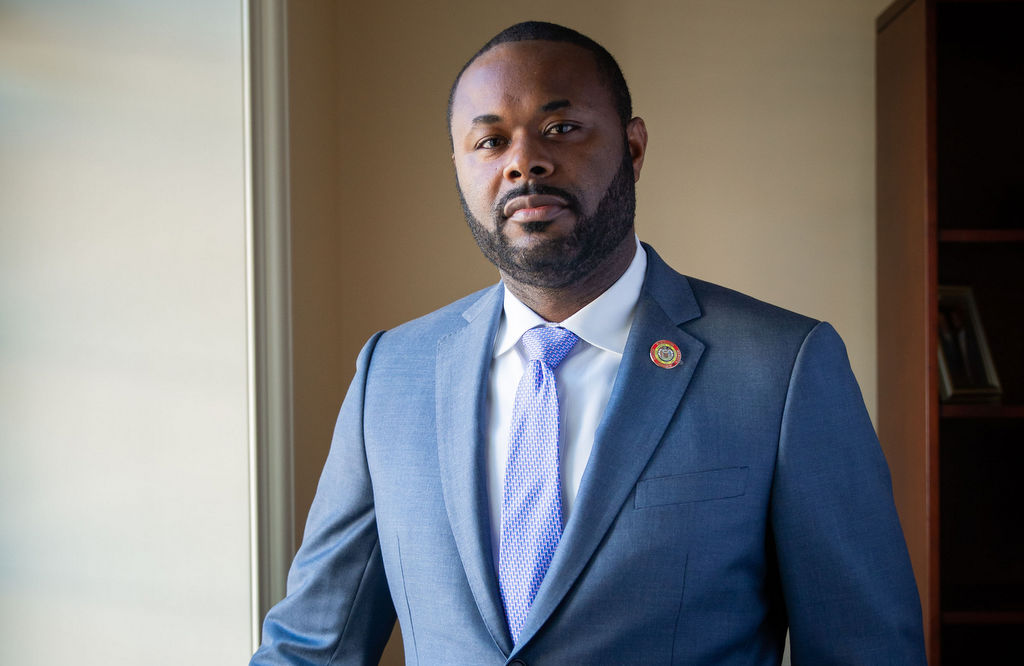[ad_1]
By Sen. Corey McCray
With record levels of violence, public safety should be on the minds of every single elected official in the City of Baltimore. We are in a critical time. This is a moment where all ideas should be put on the table and evaluated according to their benefits and drawbacks. For this reason, I reintroduced Senate Bill 72 – Members of the Command Staff of the Police Department – Residency Requirements once again this session. With the amendments that my colleagues and I have discussed, all Baltimore Police Department (BPD) officers at the rank of Colonel or higher must be residents of Baltimore—the city they are charged with protecting. Moving forward—both in terms of strengthening the fabric of our community with BPD and rebuilding trust in the Department—requires a commitment that the highest levels of BPD command are just as invested in our communities as the residents of the City.

BPD is the lowest performing agency when it comes to number of personnel who have residency in the City of Baltimore. For this reason, I am once again attempting to ensure that the highest ranking officers (those at the level of Commissioner, Deputy Commissioner, and Colonel) are all intertwined with the communities they take an oath to protect and serve. Indeed, this is something we already ask of the Commissioner, elected officials, and senior agency leaders in city government.
One benefit of this policy is that it has the ability to increase visibility of police vehicles throughout the City. Because of these officers’ respective rank, they are provided with take home vehicles which, if this bill becomes law, will stay in the City of Baltimore when the officers return home. This means that more police vehicles will be in and around our city at all times—and potential criminal offenders will be on notice that officers are in our communities 24/7.
This policy also will help to restore the trust between the community and the police department. No longer will the extent of high-ranking officers’ involvement in Baltimore be an 8 to 10 hour day; instead, it will be 24 hours of working and living in the city that each of us call home. And in this way, “community policing” will not just be lip service on the part of BPD, it will become a reality that results in direct action for our neighborhoods. It also sends a message to the rank and file officers that perhaps if our highest-ranking officers reside in Baltimore it is worthwhile (and safe) for them to do the same.
I am proud to have the support of Council President Scott, Councilwoman Sneed, and Councilmen Burnett, Bullock, Henry, and Cohen as we put forth this policy proposal. I am also proud that the Baltimore City Senate Delegation has shown leadership and unanimously voted in favor of this bill. But there is still more to do.
There are those who would say that you need the largest possible pool of applicants when choosing leadership, especially in a police department. I respectfully challenge this way of thinking. Instead, we should strive to have the most capable, dedicated, and committed applicant pool. I am not sure there is a better way to determine which officers are truly invested in Baltimore than asking them to live where they work. The message that doing so sends is clear. It allows Baltimore residents to know that these officers have not given up on our city despite its challenges. Not to mention, leaders of all stripes have a greater responsibility to be creative, show critical thinking skills, and think outside the box because leaders’ actions are influential to others.
It is important to note that Senate Bill 72 is prospective in effect. That is, it will only effect future leadership decisions at BPD; no one currently in a leadership position will be impacted by the policy, though we hope they too would consider moving into the City of Baltimore if they do not already live here. I ask that each and every resident, if you agree that this proposal should be part of our overall Baltimore City Crime Plan, reach out to your elected officials and to our top cop—the Baltimore City Police Commissioner—to express your support.
Cory McCray is a member of the Maryland State Senate, representing the 45th District, which encompasses Northeast and East Baltimore City.
The opinions on this page are those of the writers and not necessarily those of the AFRO.
Send letters to The Afro-American • 1531 S. Edgewood St. Baltimore, MD 21227 or fax to 1-877-570-9297 or e-mail to [email protected]
[ad_2]
Source link

